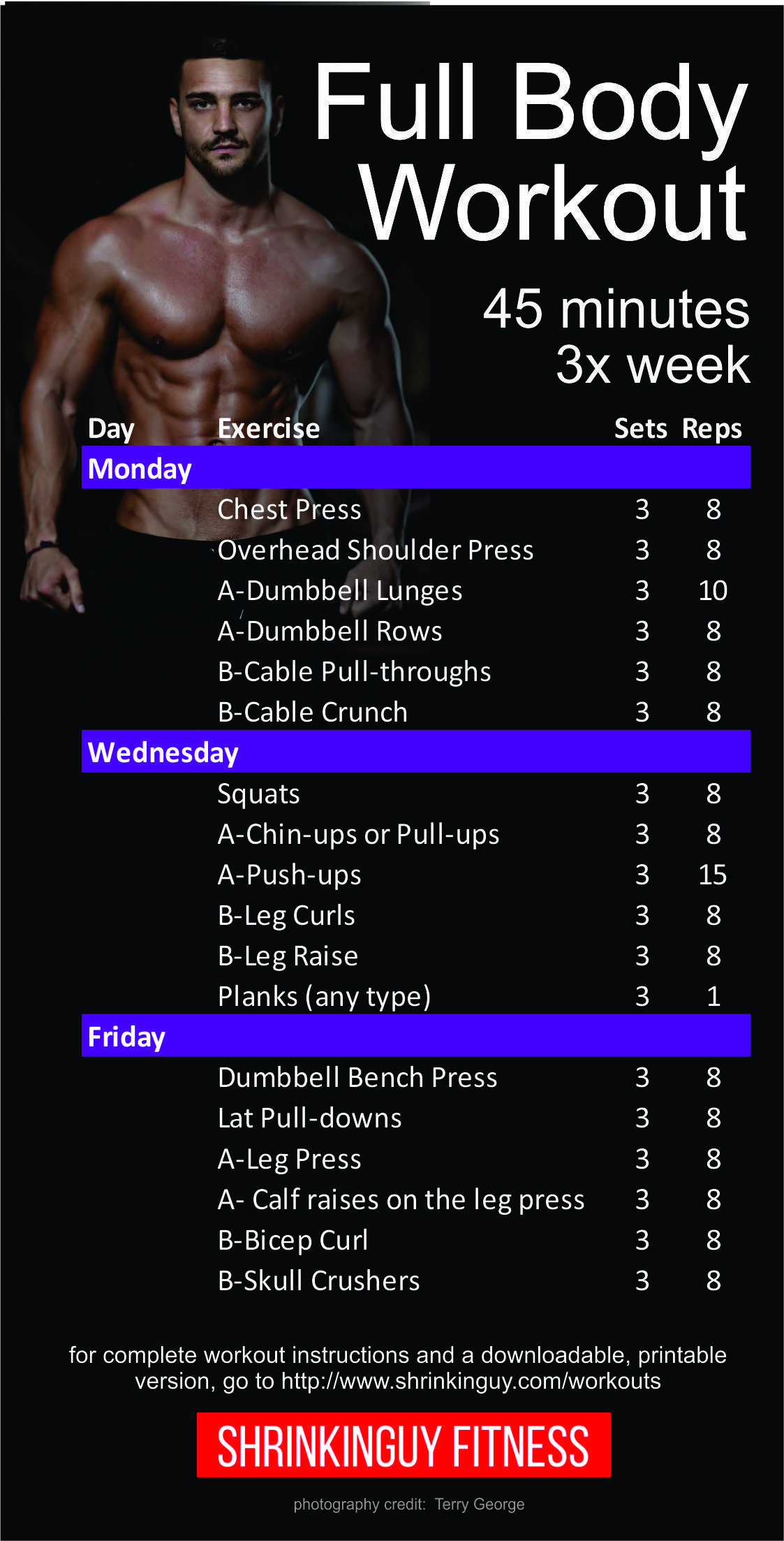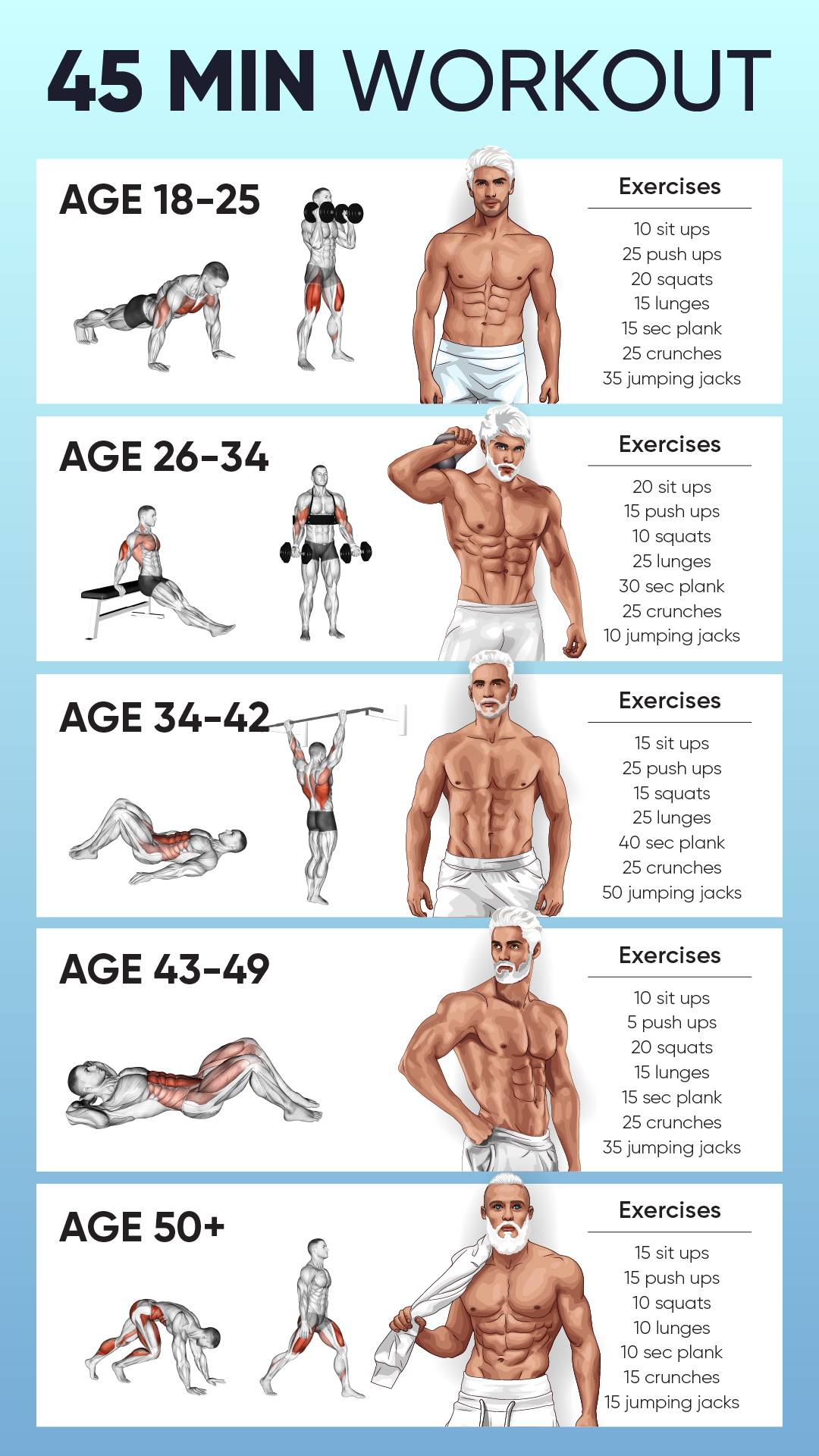A typical workout for a typical goal will usually take between 30-120 minutes to complete, most often between 45-90 minutes. But more importantly, this doesn't actually matter. What does matter is whether the workouts are designed the way they should be.
How long should a full workout last?
The ideal workout duration can vary significantly depending on the person, their goals, their preferences, and the exercise type. For weightlifting and bodyweight strength training, 45–60 minutes per session may suffice. Meanwhile, cardiovascular and calisthenic training may be better if performed for 30–60 minutes.
Is a 2 hour full body workout too long?
For those with a higher training age, workouts lasting two hours aren't unheard of. These types of sessions would have a large amount of rest time, but are certainly possible. These long of sessions are especially common with powerlifters and body builders.
Is it OK to do full body workouts everyday?
You risk overuse of certain muscles
Doing too much of any type of exercise, without adequate rest time, runs the risk of causing pain or injury. Running every day is a lot of impact on the knees and doing full-body strength training on consecutive days can overwork your muscles and not give them time to recover.
Is 1 hour full-body workout enough?
When it comes to building strength, an hour-long session is more than adequate for both beginners and intermediates. It will allow you time for a 5-10 minute warm-up, 40-45 minutes of weight training and 5-10 minutes of cooling down and stretching.
When should I start full body workout?
Beginners should do full-body workouts three days a week. We recommend a Monday, Wednesday, Friday training schedule. This will give them plenty of time to recover between sessions. On each day, follow the basic functional movement patterns; squat, lunge, bend, push, pull, and core, and lift weights.
If I needed to lose 20-30 pounds in 90 days while only lifting weights twice per week, here's exactly what I would do:
— Jason Helmes (@anymanfitness) September 17, 2023
1. Do 2, full body workouts per week
Choose one of each the following for each workout (your choice):
Pool 1 (hip hinges)
Deadlifts (traditional or sumo,… pic.twitter.com/TbuK7lXIga
Should a gym beginner do full body?
Full body workouts are a great way for beginners to build strength and endurance, without overdoing it. You can make great strength gains while only training two to three times a week, which allows for plenty of recovery. Full body workouts also burn calories more efficiently as you're working every muscle group.
Frequently Asked Questions
What are the disadvantages of full body workouts?
Drawbacks of a Full-Body Workout
There could be an increased risk of overtraining. Full-body workouts can be difficult and exhausting. A typical full-body workout might include squats, deadlifts, bench press, pull downs, and abdominal work all in the same day.
Is full body 3 times a week the best?
While doing a full-body workout 3 times a week certainly is possible, many experts recommend you exercise caution in doing so. Some believe that a better approach is to do the full-body workout only twice a week while engaging in less strenuous workouts the alternating three days.
Is full body workout 7 days a week good?
There really are great benefits to working out every day of the week. Improved endurance is a beneficial side effect if you work out seven days a week. An example of bettering your endurance is jogging at a moderate pace for a certain amount of time each day.
Is it OK to workout full body everyday?
While a full-body workout training split has its advantages, it's best not to do it every day. It's important that your muscles have adequate rest and recovery time to prevent overtraining. So, if you prefer a full-body workout training split, keep it to 2-3 workouts per week for the best results.
FAQ
- How many rest days for full body workout?
- Experts recommend 2 to 3 rest days between strength training workouts like lifting weights. So you can plan resistance workouts that target different muscle groups. For example, you might do upper-body exercises on Monday and lower-body exercises on Tuesday.
- Can I do a full body workout 3 days in a row?
- "High-intensity, total-body workouts (like burpees) don't provide the same muscular stress as classic strength workouts, so it's okay to do them on back-to-back days," says Pire.
- Can you get ripped with full body workouts?
- Yes full body weight training three times a week combined with a proper diet can help you get ripped for sure especially if you are new to weight training.
How long should you do full body workouts
| How often should you do full body workouts? | While a full-body workout training split has its advantages, it's best not to do it every day. It's important that your muscles have adequate rest and recovery time to prevent overtraining. So, if you prefer a full-body workout training split, keep it to 2-3 workouts per week for the best results. |
| Is it okay to do full body weight training everyday? | The short answer is no. While there are many benefits to strength training, including building stronger bones and muscles and maintaining a healthy weight, you shouldn't lift weights every day. “The science for strength training is that two to three days per week is the best dose for most people. |
| Are 4 full body workouts a week too much? | You could also do four total-body workouts per week as long as the workouts are spread out or you don't train your muscles in exactly the same way. “Total-body training on a daily basis [can mean you] don't allow proper recovery between training days,” Jason White, Ph. |
- Is 3 full body workouts too much?
- Allowing your body at least 1 day to recover between each full-body workout is key, so three sessions per week is a good baseline to start with.
- How many days a week can you do a full body workout
- A full-day workout is a popular and effective training program to follow, however, it's not recommended to do one not every day. To get better results, focus on
- What day to do full body workout
- Jun 20, 2022 — If You Lift 2-3 Times a Week — Full-Body Workouts Some research shows that training muscle groups twice per week is better than doing so once


